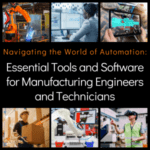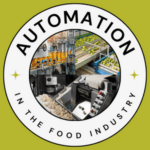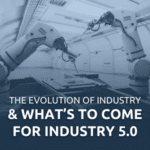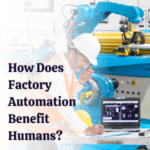Revolutionizing Food Production: How AI is Changing the Industry

Artificial intelligence is not only revolutionizing the way we produce, inspect, and distribute food products, but it’s also playing a significant role in transforming manufacturing processes and factory automation within the food industry.
Here’s how AI is making its mark:
- Optimized Production Processes: Artificial intelligence and automation can optimize manufacturing processes by continuously monitoring and adjusting variables like temperature, humidity, and ingredient proportions. This results in more consistent product quality, reduced wastage, and increased energy efficiency. Take Quantum Technical Services for example. They excel in manufacturing high-speed, automated equipment that can handle portioning and applying sauces, toppings, and other ingredients. Quantum’s equipment, widely adopted in the pizza industry, exemplifies how automation can streamline production, maintain product quality, and be scalable for businesses of all sizes.
- Predictive Maintenance: AI-powered sensors and predictive maintenance algorithms can monitor machinery in real-time. By analyzing sensor data, AI can predict when equipment is likely to fail and schedule maintenance before any disruption in production occurs. This proactive approach minimizes downtime and extends the lifespan of expensive equipment.
- Supply Chain Efficiency: Artificial intelligence can enhance supply chain management by predicting demand, optimizing inventory levels, and suggesting the most efficient routes for transporting raw materials and finished products. This reduces production delays and ensures products reach consumers in the freshest condition.
- Quality Control and Inspection: AI systems can conduct automated quality control inspections, detecting defects or contaminants in real-time. This ensures consistent product quality and minimizes the risk of tainted or unsafe products reaching consumers.
- Recipe and Formulation Optimization: AI algorithms can analyze vast amounts of data to optimize recipes and formulations, considering factors like taste preferences, nutritional content, and cost-efficiency. This leads to the creation of better-tasting and more cost-effective food products.
- Smart Packaging: AI can be used to develop smart packaging solutions that can monitor the freshness of products. For example, smart labels can change color to indicate whether a product has spoiled or is still safe to consume, reducing food waste.
- Robotic Process Automation: Robots equipped with AI capabilities are increasingly being used for tasks such as sorting, packaging, and even cooking in food manufacturing. They can work collaboratively with human workers to speed up production and maintain consistency in product quality.
- Enhanced Worker Safety: Automated robots and machines can take over physically demanding, dangerous, or repetitive tasks in food production facilities, reducing the risk of workplace accidents and freeing up human workers for more complex and strategic roles.
- Customization and Personalization: AI systems can enable the customization of food products to meet individual consumer preferences. For instance, AI-powered production lines can adjust the ingredients and flavors of snacks based on real-time data on consumer preferences.
- Energy Efficiency: Artificial intelligence can optimize energy consumption in manufacturing facilities. It can analyze patterns of energy usage and suggest adjustments to minimize costs and reduce the carbon footprint of food production.
While AI is bringing significant benefits to the food manufacturing and factory automation processes, it’s important to be mindful of potential challenges and concerns, such as:
- Initial Implementation Costs: Implementing AI technology can be expensive, and it may require a significant upfront investment. However, the long-term benefits often outweigh the initial costs.
- Workforce Transformation: As artificial intelligence becomes integrated into the food industry, two challenges emerge: upskilling and retraining the existing workforce to adapt to new roles, while also addressing concerns about potential job displacement. It’s important to note that while AI may automate certain tasks, it can simultaneously create fresh employment prospects, reshaping the nature of work in the industry. The key is not to fear the role of automation but to harness its potential for innovation and ensure that the workforce remains adaptable to future changes.
- Data Security and Privacy: Handling and analyzing vast amounts of data raises concerns about data security and privacy, especially when it comes to sensitive consumer information and proprietary recipes.
- Regulatory Compliance: The food industry is heavily regulated, and AI implementations must adhere to industry-specific standards and regulations, which can be complex and subject to change.
- Ethical Considerations: As AI continues to advance, it’s important to address ethical concerns surrounding its use, such as transparency in decision-making and ensuring that AI benefits both consumers and the environment.
In this age of innovation, artificial intelligence is reshaping the food industry, from production to manufacturing. While the benefits are abundant, it’s crucial for stakeholders in the industry to carefully navigate the challenges and ethical considerations surrounding AI adoption. This will ensure that the best interests of consumers, the environment, and the industry as a whole are upheld.
About the Author: Katie Meyers is an SEO Specialist at Quantum Technical Services. Katie is from Washington State and has a dual BA in journalism and marketing. She enjoys writing about pizza, dancing, and pop culture.




